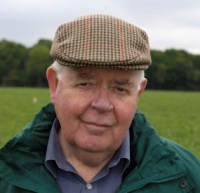David Richardson: Science vs politics

On September 24 EU ministers agreed the Pesticide Authorisation Regulation which will remove up to 20% of currently approved crop protection products from the market.
The proposal to ban up to 85% of approved products had been rolling around Brussels’ corridors for many months so the measure adopted is at least more moderate than it was at inception.
Lobbying by the Crop Protection Association and others was, to that extent, successful.
Even so the new rules, as the CPA has pointed out, are at odds with the urgent demands placed on modern, productive agriculture and call into question the entire EU policy-making process. To his credit, Hilary Benn has also expressed concern the rules “could dramatically reduce yields of wheat, maize, potatoes and carrots without meaningful benefits for health or the environment”.
The European Commission on the other hand, dominated as it is by ultra greens that were the authors of the original proposal, welcomed the adoption of the new rules saying they would “increase protection of human health and the environment”.
On September 25, the day after the new regulation was agreed, EU Commission president, Jose Manuel Barroso proposed the creation of a new post within the organisation of chief scientific adviser. He highlighted the need to identify and encourage science and innovation across the community.
But can it be a co-incidence he announced his plan on the heels of the wholly unscientific decision of those who serve under him on pesticide authorisation? I hope not.
As the NFU commented, we are fortunate in Britain to have a government chief scientist, Professor John Beddington, who makes significant contributions to government thinking and appears, from some recent ministerial speeches on food security, climate change and energy, to be making a difference.
Moreover, it is shocking the EU does not currently have a similar expert from whom to take advice.
Meanwhile the whole sorry saga illustrates how politics can conflict with science and lead to measures that contradict one another and damage to the people the politicians claim represent.
Politics at its worst is about exploiting the system for personal gain. At its best it is based on the belief that having the power to change policies enables politicians to improve the lives of the electorate. Let’s be charitable and assume the politicians who drafted the new Pesticide Regulation had good intentions.
However, good intentions without scientific verification are dangerous.
The individuals concerned and those who followed their lead may have been optimistic about the results. But while optimism is good; blind faith is not.
Sound science, on the other hand, is based on evidence and research. It takes nothing for granted. It examines all possibilities. For that reason you will never get a scientist to concede any product or process is 100% safe.
They will always admit that while existing knowledge shows something is 99.99% safe there is an outside chance something may be discovered that prevents 100% designation. It is this reluctance towards absolutism that makes them vulnerable to criticism by some.
Sadly that kind of caution is anathema to extreme politicians. They just know they are right – like fundamentalists – and find it impossible to accept they may be wrong. And they’re the good ones – the ones who are not in the game for personal gain.
As Martin Bell, the former MP and BBC war correspondent, said recently, “Politics is too important to be left to politicians. They are not to be trusted with it.”
